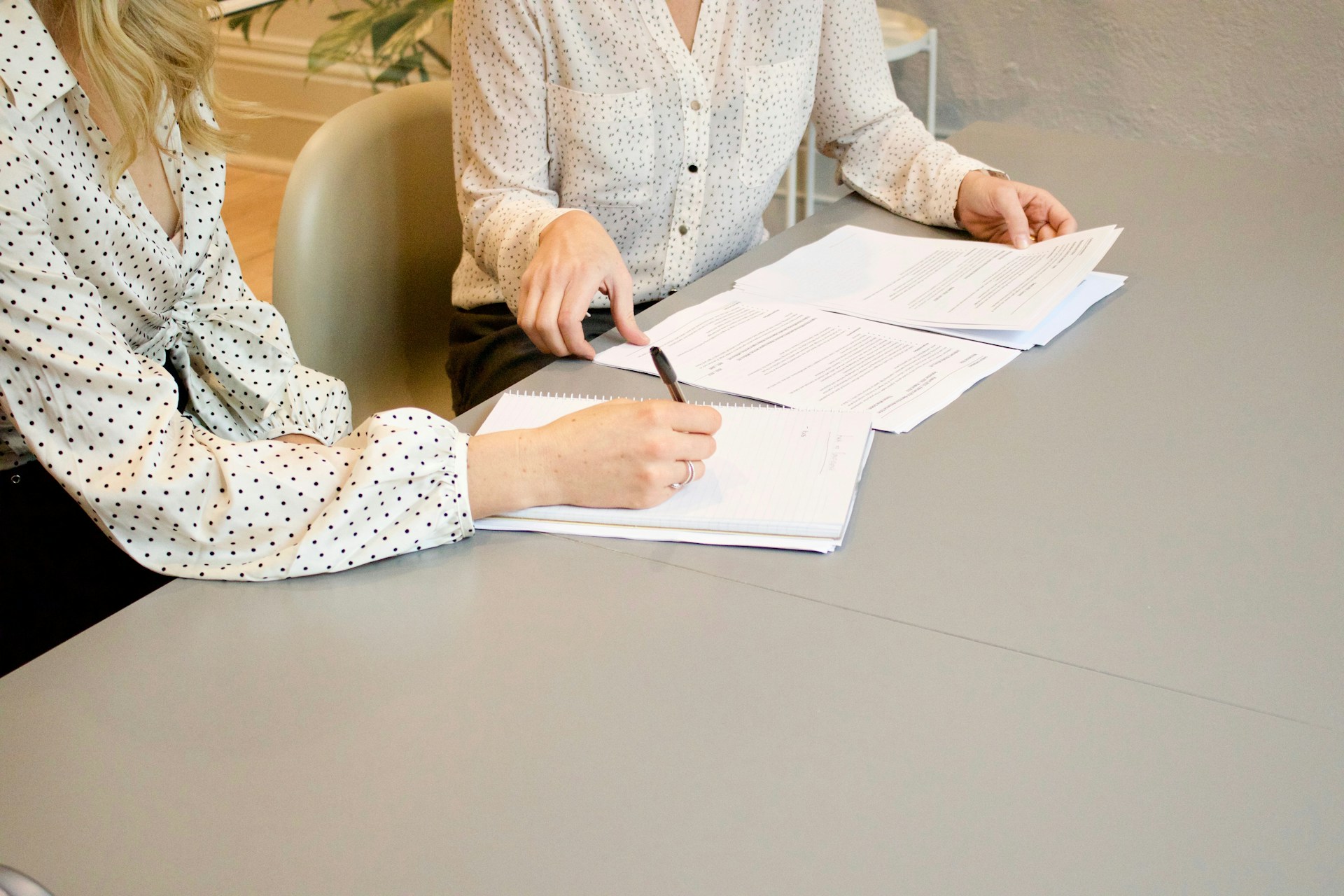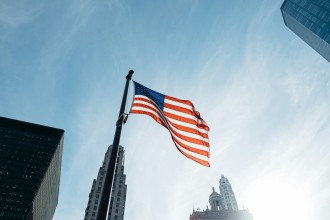Study In USA
F1 Visa Interview Questions: What to Expect and How to Answer Confidently

Introduction
The F1 visa interview is one of the most important things that international students who want to study in the US have to do. Getting through this interview successfully could mean the difference between getting your student visa USA and having to wait or be turned down. Knowing what questions are often asked during F1 visa interviews and how to answer them with confidence is very important for a smooth application process.
During the interview, U.S. consulate officers ask questions to make sure you have a plan for your studies, enough money to pay for them, and that you plan to go back to your home country after you finish your studies. These questions are often referred to as US interview questions, US F1 visa interview questions, or simply US visa interview questions. They usually ask about things like the university you want to go to, the program of study you want to take, your career goals, how you plan to pay for your tuition and living expenses, and how you are connected to your home country.
A lot of students from Nepal and other countries are nervous about the F1 visa interview questions because they are afraid they will be asked questions they weren't expecting or won't have all the paperwork ready. The good news is that most questions are easy to guess and can be answered well with the right amount of preparation. You can greatly improve your chances of getting approved by practicing your answers, gathering all the necessary paperwork, and fully understanding your academic plan.
At the Global Education Counselling Centre, we help students with every part of the F1 visa process, even getting ready for the US F1 visa interview questions or for any other interviews. Our trained counselors help students get ready for the F1 visa interview by going over the kinds of questions they might be asked, practicing confident answers, and making sure they have all the paperwork they need.
Understanding the F1 Visa Interview
The F1 visa interview is a very important step in getting a student visa for the US. It is a brief, in-person meeting with an officer from a U.S. consulate or embassy who checks to see if you are a real student and meet the requirements for an F1 visa. Knowing what the interview is for and how it works will help you get ready for common F1 visa interview questions.
Purpose of the F1 Visa Interview
- To make sure you are accepted to a U.S. school that is SEVP-approved.
- To make sure you have enough money to pay for school and living costs.
- To make sure you have strong ties to your home country and plan to go back there after you finish your studies.
- To see if you are eligible and want to be a non-immigrant student.
Who Conducts the Interview
- A U.S. consular officer at an embassy or consulate does the interview.
- Officers are taught how to ask clear, short questions and decide if applicants meet the requirements for an F1 visa.
Duration and Format
- Usually lasts between 3 and 5 minutes, but this can change depending on the case.
- Most of the questions are direct and have to do with your study plans, money, and goals for the future.
- The officer will also look over your paperwork and may ask you more questions if they need to.
Key Points to Remember
- Be honest, confident, and concise in your answers.
- Get all of your papers in order and ready.
- Stay calm and answer only what is asked.
Understanding the structure and purpose of the F1 visa interview is the first step to tackling US F1 visa interview questions confidently and improving your chances of visa approval.
Common F1 Visa Interview Questions
It's very important to get ready for the F1 visa interview because the questions are meant to check your study plans, financial stability, and plans to go back to your home country. If you know the most common F1 visa interview questions ahead of time, you'll be able to answer them with confidence and have a better chance of getting approved.

Below are the most frequently asked questions:
1. Academic and Program-Related Questions
- What made you pick this university?
- What made you pick this course or program?
- How does this course fit into your career plans?
- What makes you want to study in the US instead of your home country?
2. Financial and Funding Questions
- How will you fund your education in the USA?
- Do you have scholarships or financial aid?
- Can you show that you have enough money to pay for school and living costs?
3. Questions About Your Home Country and Intent
- Do you plan to return to your home country after completing your studies?
- What connections do you have to your home country (family, property, job opportunities)?
- How will this degree help you in your home country?
4. Personal Background Questions
- Tell me about yourself.
- What are your long-term career goals?
- Have you ever been to another country?
5. Practical or Miscellaneous Questions
- When will your course start?
- Who will pay for your education?
- Do you have relatives or friends in the USA?
At GECC, we make sure to help students practice answers properly for these US F1 visa interview questions, be it simple or difficult interview questions, making them confident, concise, and ready to face the interview with ease.
How to Prepare for the F1 Visa Interview
The key to answering F1 visa interview questions well is to be well-prepared. You can feel sure about your student visa USA interview if you plan ahead, get your papers in order, and practice your answers.
Here's a step-by-step plan to help you get ready for your interview:
1. Organize All Required Documents
- Form I-20 issued by your SEVP-approved school.
- DS-160 confirmation page.
- SEVIS I-901 fee receipt.
- Visa application fee receipt.
- Passport valid for at least six months beyond your stay.
- Academic transcripts, certificates, and test scores (IELTS, TOEFL, GRE, etc.).
- Proof of financial support (bank statements, scholarships, or sponsor letters).
- Any papers that show you have ties to your home country, like family, property, or work.
2. Understand Your Academic Plan
- Make sure you know why you chose your university and course to answer confidently.
- Know how your program fits with your career goals.
- Be ready to explain why it is important for your future to study in the US.
3. Practice Common Interview Questions
- Get ready to answer questions about your course, your money, and your ties to your home country.
- Practice speaking clearly, confidently, and concisely.
- Don't memorize answers word for word. Instead, understand the main points and say them in your own words.
4. Dress Professionally and Maintain Good Body Language
- Wear formal or business-casual attire.
- Sit straight, maintain eye contact, and speak clearly.
- Avoid fidgeting or showing signs of nervousness.
5. Be Honest and Confident
- Always provide truthful information.
- Answer only what is asked; avoid giving unnecessary details.
- Show genuine interest in your studies and future goals.
Strategies to Answer Questions Confidently
If you can answer F1 visa interview questions with confidence, your chances of getting a student visa USA will go up a lot. Even if you know the answers, being clear, honest, and professional when you give them will make a good impression on the U.S. consular officer.

Here are some important tips to help you answer with confidence:
1. Be Honest and Clear
- Always provide truthful answers; never exaggerate or misrepresent information.
- Be clear and direct in your answers. Consular officers like clear answers better than long ones.
2. Stay Calm and Composed
- Take a deep breath before answering each question.
- Don't rush your answers; if you need time to think, take a short break.
- You can feel more confident if you stay calm and focused during the interview.
3. Prepare Key Points
- Understand your academic goals, university choice, and career plans.
- Know exactly how you will pay for your studies and what kind of financial help you will get.
- Be ready to talk about connections to your home country, like family, property, or job prospects.
4. Practice Common F1 Visa Interview Questions
- Rehearse answers to US F1 visa interview questions like your course choice, funding, and future plans.
- To sound confident and real, practice speaking naturally instead of reading from a script.
5. Use Positive Body Language
- Maintain eye contact and sit upright.
- Smile politely and show attentiveness.
- Avoid fidgeting, looking down, or appearing nervous.
6. Keep Answers Concise
- Answer only what is asked; avoid unnecessary details.
- Being concise demonstrates confidence and clarity of thought.
At GECC, we help students practice these strategies, providing mock interviews and personalized guidance to confidently answer F1 visa interview questions and increase the likelihood of visa approval.
Common Mistakes to Avoid During the Interview
A lot of students make simple mistakes during their F1 visa interview that can make it less likely that they will be approved. To make sure everything goes smoothly, you need to know about these problems and stay away from them.
Here are the most common mistakes to watch out for:
1. Being Unprepared
- Not knowing about your university, course details, or future plans can make you look bad.
- Not organizing papers like Form I-20, DS-160 confirmation, or proof of funds can slow things down.
2. Providing Vague or Inconsistent Answers
- Giving unclear answers to questions about your study plans or finances may raise doubts about your intentions.
- Avoid changing your answers or giving conflicting information during the interview.
3. Forgetting Important Documents
- If you don't have important documents like your I-20, passport, SEVIS fee receipt, or financial statements, you could be turned down.
- Before the interview, make sure to check your papers twice.
4. Appearing Nervous or Overly Confident
- Excessive nervousness may make you seem unprepared or uncertain.
- Being too sure of yourself or too proud can also make a bad impression. Stay calm and polite.
5. Misrepresenting Information
- Never lie about your finances, course choice, or future plans.
- False information is easily detected and can result in visa denial or even a permanent ban.
6. Over-Explaining or Giving Irrelevant Details
- Answer only what is asked. Providing unnecessary information can confuse the interviewer.
At GECC, we help students identify these common mistakes and provide practical tips to avoid them. Through our mock interviews and personalized guidance, students can confidently handle US F1 visa interview questions and maximize their chances of approval.
Conclusion
For international students who want to study in the United States, the F1 visa interview is a very important step. To do well on the F1 visa interview, you need to be ready, sure of yourself, and clear. Students can greatly increase their chances of getting accepted by learning common questions, organizing their papers, and practicing short, honest answers.
It's just as important to avoid common mistakes like being unprepared, giving vague answers, or lying about facts. If you want to make a good impression on the U.S. consular officer, you should stay calm and professional, show that you are really interested in your studies, and show that you have strong ties to your home country.
At GECC, we make sure to guide each and every one of our students through every stage of the F1 visa interview process. From document verification and mock interviews to personalized strategies for answering US F1 visa interview questions, our expert counselors ensure that students are fully prepared and confident.
To sum up, the keys to doing well in your F1 visa interview are to be well-prepared, practice, and know exactly what you want to achieve in school. You can confidently go through the process and make a big step toward your dream of studying in the USA if you have the right mindset and guidance



-1761360231.jpg)
